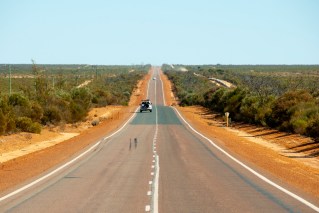The world has agreed to start “phasing down” coal power after the COP26 summit in Glasgow reached a final agreement, but with a last-minute wording change to appease India.
After stretching into an extra day, COP26 president Alok Sharma banged down his gavel to signal that almost 200 countries had backed a Glasgow Climate Pact.
The international agreement aims to keep alive hopes of capping global warming at 1.5C but the wording was revised from phasing out coal power to phasing it “down”.
Mr Sharma became emotional has he told the conference he was “deeply sorry” for the way the process had unfolded.
His voice breaking after hearing from vulnerable countries which expressed their anger over the changes to the text, he said: “May I just say to all delegates I apologise for the way this process has unfolded and I am deeply sorry.”
“I also understand the deep disappointment but I think as you have noted, it’s also vital that we protect this package.”
The deal is the result of two weeks of tortuous negotiations in Glasgow that had to be extended for an extra day to balance the demands of climate-vulnerable countries, big industrial powers and those whose consumption or exports of fossil fuels are vital to their economic development.
Earlier
Australia says it can accept the latest draft COP26 deal as talks stretched into an extra day, but a unanimous pledge faced vocal opposition from major coal users China, India and South Africa.
The global summit again heard the opinions of delegates on the latest wording which retains language about phasing out coal and fossil fuels, albeit watered down.
Nations such as the Maldives, comprised of nearly 1200 islands, told the summit the difference between rising temperatures of 1.5C or 2C was “a death sentence for us”.
But developing nations were loudly critical of phasing out coal, with India angrily demanding the right to emit its fair share of pollution as part of its economic development.
Australia’s representative told the COP26 summit he did not object to the language around coal or fossil fuel subsidies in the draft document.
“Australia can accept the present text and we call on all parties to look at how we can come together to deliver a successful outcome from COP26.”
He added that for Australia, transparency and the rules on how carbon markets are delivered are critical.
Australia also welcomed the need to address issues of human rights and the rights of Indigenous peoples in the section dealing with carbon markets.
COP26 president Alok Sharma told delegates the outcome of this climate gathering was “the moment of truth for our planet” as he tried to avert failure at the talks.
Mr Sharma said the world had reached a critical juncture where it must come together and he urged delegates to “reach an agreement here for the sake of our planet and for present and future generations.”

Extinction Rebellion protesters believe COP summits to date have been failures. Photo: Getty
A final deal would require the unanimous consent of the almost 200 countries present, ranging from coal- and gas-fuelled superpowers to oil producers and Pacific islands fearful of a rise in sea levels.
The issue of subsidies for oil, gas and coal has become a major sticking point at the summit, where negotiators already missed a Friday deadline to strike an agreement to limit global warming to 1.5C.
Like earlier versions, the latest draft of the conference agreement attempted to balance the demands of climate-vulnerable countries, big industrial powers and those that need fossil fuels for their economic development.
India’s anger
India stood out as a key opponent to a deal, backed by Iran.
India’s environment and climate minister Bhupender Yadav said he disagreed with the language on fossil fuel subsidies and that the draft lacked balance.
In one of the strongest criticisms of the COP26 draft, Mr Yadav said developing countries had the right to use the remainder of the so-called global “carbon budget” or the amount of carbon dioxide the world could release before warming crossed the 1.5C threshold.
“Mr President thank you for your efforts to build consensus,” he told the UK’s COP26 president, Alok Sharma, at a so-called stocktaking plenary.
“I am afraid, however, the consensus remained elusive.
“In such a situation, how can anyone expect that developing countries can make promises about phasing out coal and fossil fuel subsidies when developing countries have still to deal with their development agendas and poverty eradication?”
Mr Yadav also criticised what he described as “lack of balance” in the agreement, an argument developing countries have made before when pushing for more money to better adapt their countries to deal with the effects of climate change.
-with AAP









